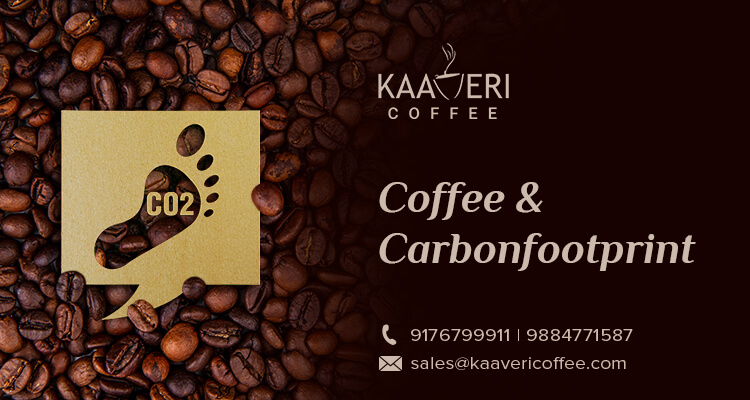
COFFEE AND CARBON FOOTPRINT
Coffee, essentially a good agricultural product doesn’t easily grow and reach global destinations without having its own contribution towards carbon footprint. Your Coffee Manufacturer and his ethical means of producing and transporting coffee beans.
Get to know how baristas can cut carbon emission in their coffee world. The first step of carbon emission in the coffee world starts while growing it. The growing, processing and milling of green coffee beans plays quite a great role in emitting carbon. The latter is the use of fertilizers and the yield from it. Finally the transportation aspect of harvested coffee beans to global destinations.
FERTILIZERS
The role of fertilisers while cultivating coffee itself emits 94% of the carbon footprint, where just 3% is emitted from the burning of fossil fuels in the farm which is done during the transportation of the cherry to the wet mill.
Stepping back to the production of fertilizers, they emit quite a noticeable amount of carbon or Greenhouse gas (GHC). The fertilizers are like the black hole that drags all the reasons for the carbon emission in organic farms. Especially the nitrogen in the fertilizers that are not absorbed by the plants which get converted into N2O, a significant greenhouse gas. Similarly the natural fertilizers that the coffee farms use such as manure or coffee pulp waste emit a large amount N2O.
When the study has been made as of which farming technique emits more carbon, that is made between conventional and organic farming, both emitted significant amount of GHC but due to fertilisers only
The residues that fall off from the coffee or shade trees, they get decomposed in the soil and they emit significant amounts of N2O which is termed as pruning. So if you are a coffee cultivator, irrespective of the type of farming either it is conventional or organic, use fertilisers when needed only.
WHY AND WHY NOT TO USE FERTILIZERS
There is a saying that switching to organic farming will reduce the carbon footprint. But it ain’t so. It totally depends on the type, the amount and the frequency of fertilisers that we use. But at the same time organic farming requires larger land for cultivation which again requires conversion of farmland or grassland into cultivating farms resulting in high carbon emission. Fertilizers that are used because of the location of the farm that limits the basic aspects for a good quality coffee growth is unnecessary and emits a larger carbon footprint.
A conventional farm will emit less carbon if maintained well, rather than a poorly maintained organic farm.
Kaaveri Coffee selects their coffee beans from farms that have very less carbon emission. Check out their fresh instant Coffee Powder products at https://www.kaavericoffee.com


No Comments